1 / 2
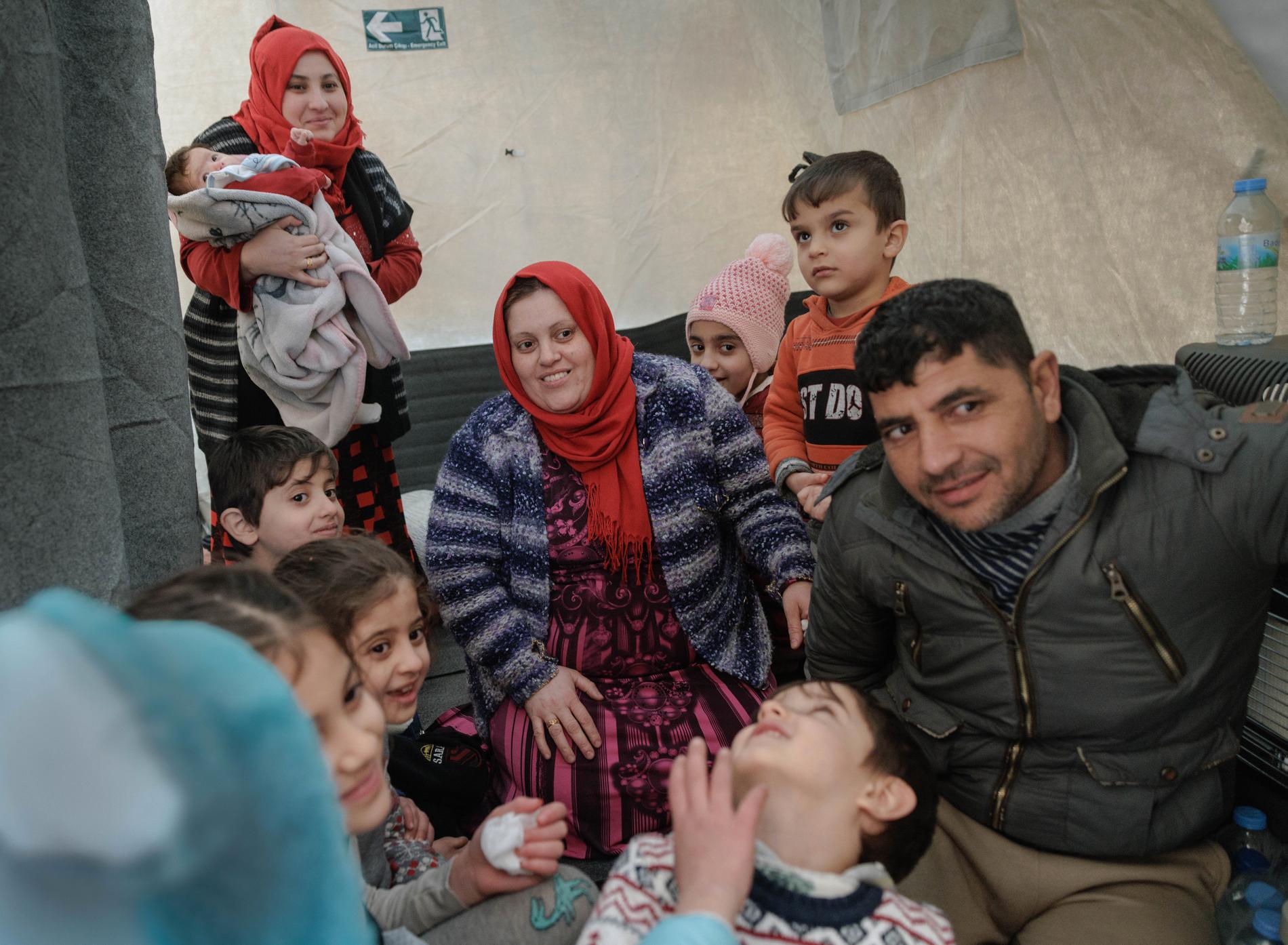
KAHRAMANMARAŞ (VG) Two families with nine small children are crammed together in a small tent. The earthquake brings back memories of the last time they fled – from the terrorist army IS.
The parents of five children Sheyma (34) and Maher Sofi (40) look cheerful on VG. The last few days have been pure hell, but now they have a tent roof over their heads, in a camp set up by the Turkish emergency service AFAD.
– Our house was completely destroyed, but we got out alive. The first few days we lived on the street, it was horrible. The children were terrified and freezing cold. It rained and sleeted, says mum Sheyma.
– But now we are fine, adds father Maher.
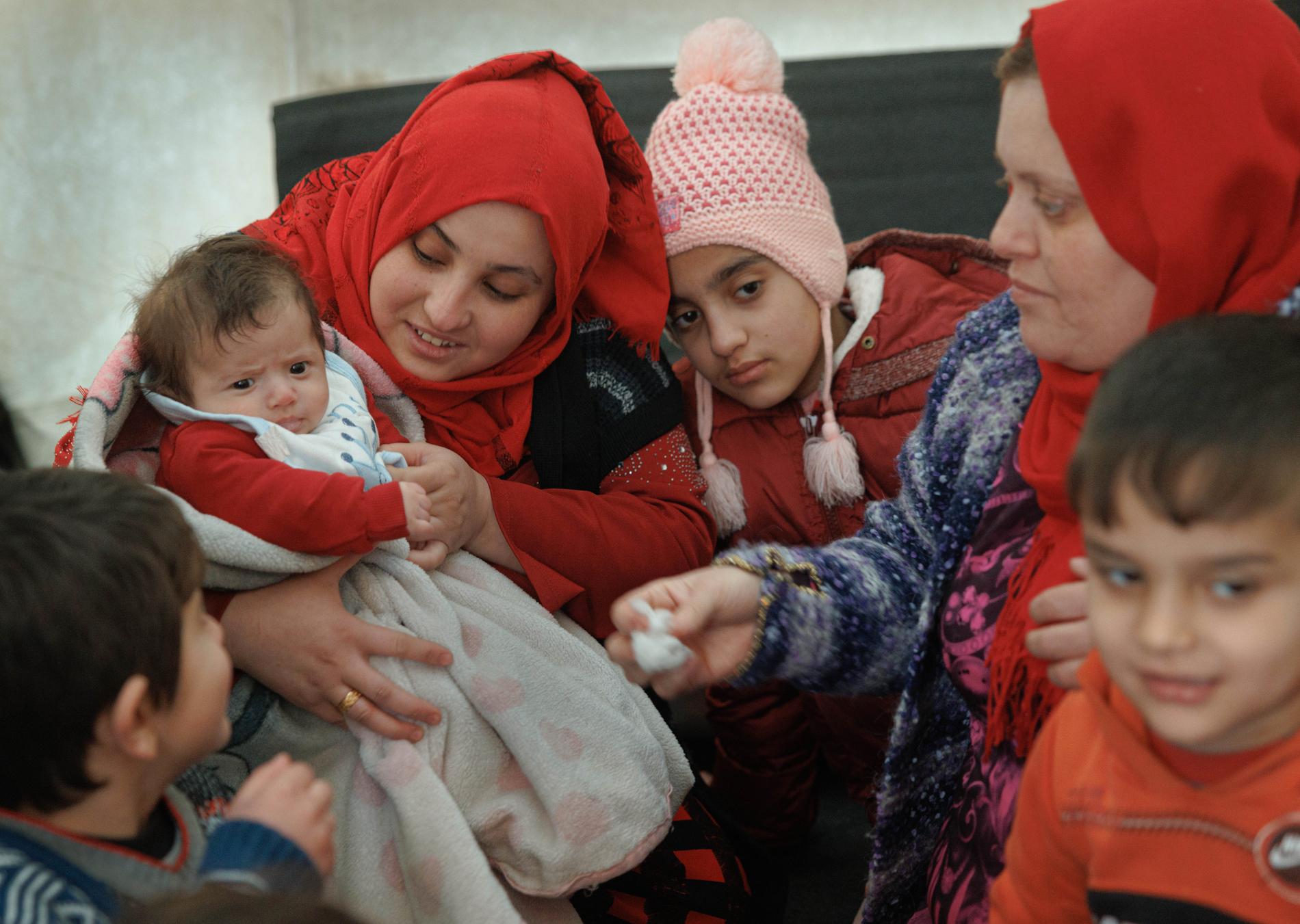
Out in the camp there is complete chaos, with food, water and clothes being distributed. But inside the tent it is surprisingly quiet, despite the fact that there are not just five children there: Altogether there are nine children, and four adults, who live in the tent.
The children’s ages range from teenagers to infants. The youngest, Abdurrahman, is two months old.
– He has cried for three days straight, but now he is happy again, says his mother Nehle Sofi (26), and shows off a black-haired little boy.
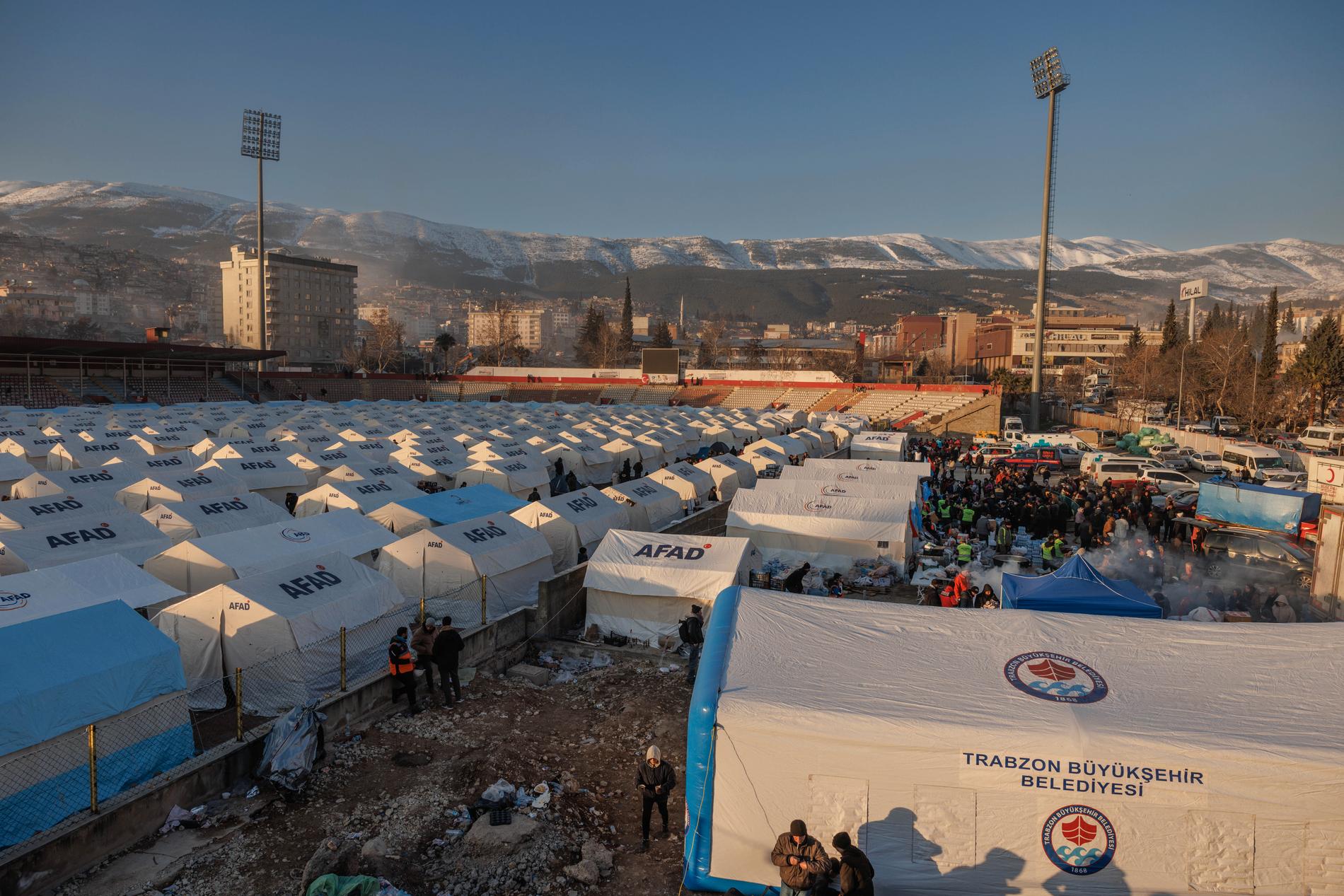
– Feels a bit like the war
Nehle is Maher’s sister, and is married to Sheyma’s brother, Ayat. For families to enter into such marriages, where two couples from the same family get married, is not unusual among Turkmen, the ethnic group they belong to.
The extended family are refugees in Turkey. The four adults and the three oldest children lived in the same house in the Iraqi city of Mosul. When the IS terrorist army captured the city in June 2014, they fled together to Turkey.
– The earthquake felt a bit like the war. One destruction came from humans, the other from nature, says Maher.
– We have been well received in Turkey, and we feel we get just as much help as Turks now. But we just don’t know what to do with our lives now. I lived by manual work, as a mover, he continues.
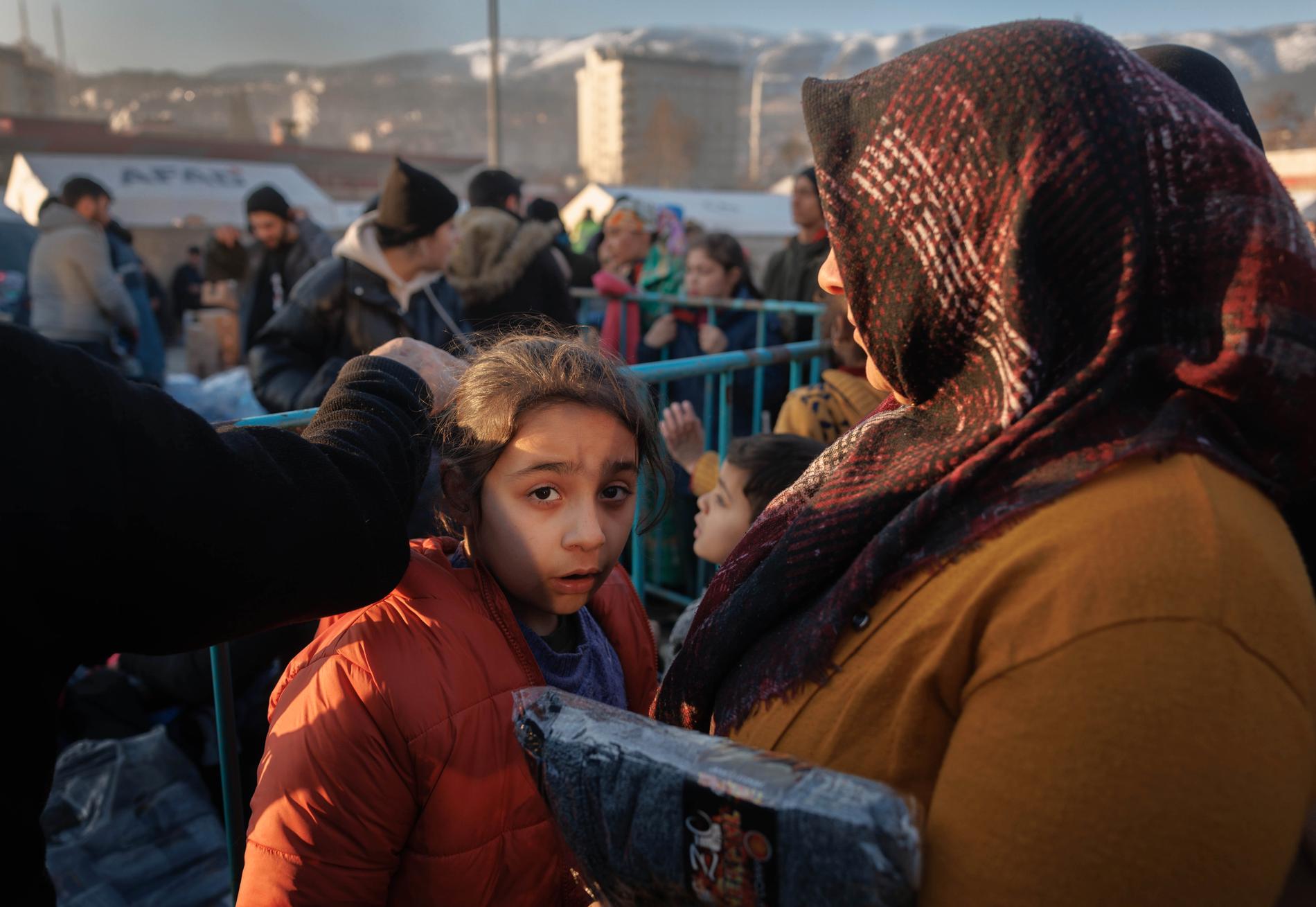
18 people live in the same tent
Out in the camp, it is the same uncertainty that characterizes Verda (42). She is the mother of eight children, and already the grandmother of two, with a third grandchild on the way.
– We are from a large family of 18 people who lived together. The earthquake was a nightmare that is impossible to understand. Thank God, we ran out and survived, says Verda.
She stands in line to get shoes and clothes for the two youngest in the group of children, Tugba (8) and Samet (7). Tugba is lucky and gets a pair of black boots.
Verda says that the house they lived in was almost completely destroyed. When they went back to retrieve some belongings, it collapsed even more during an aftershock.
Now all 18 live in the same tent.
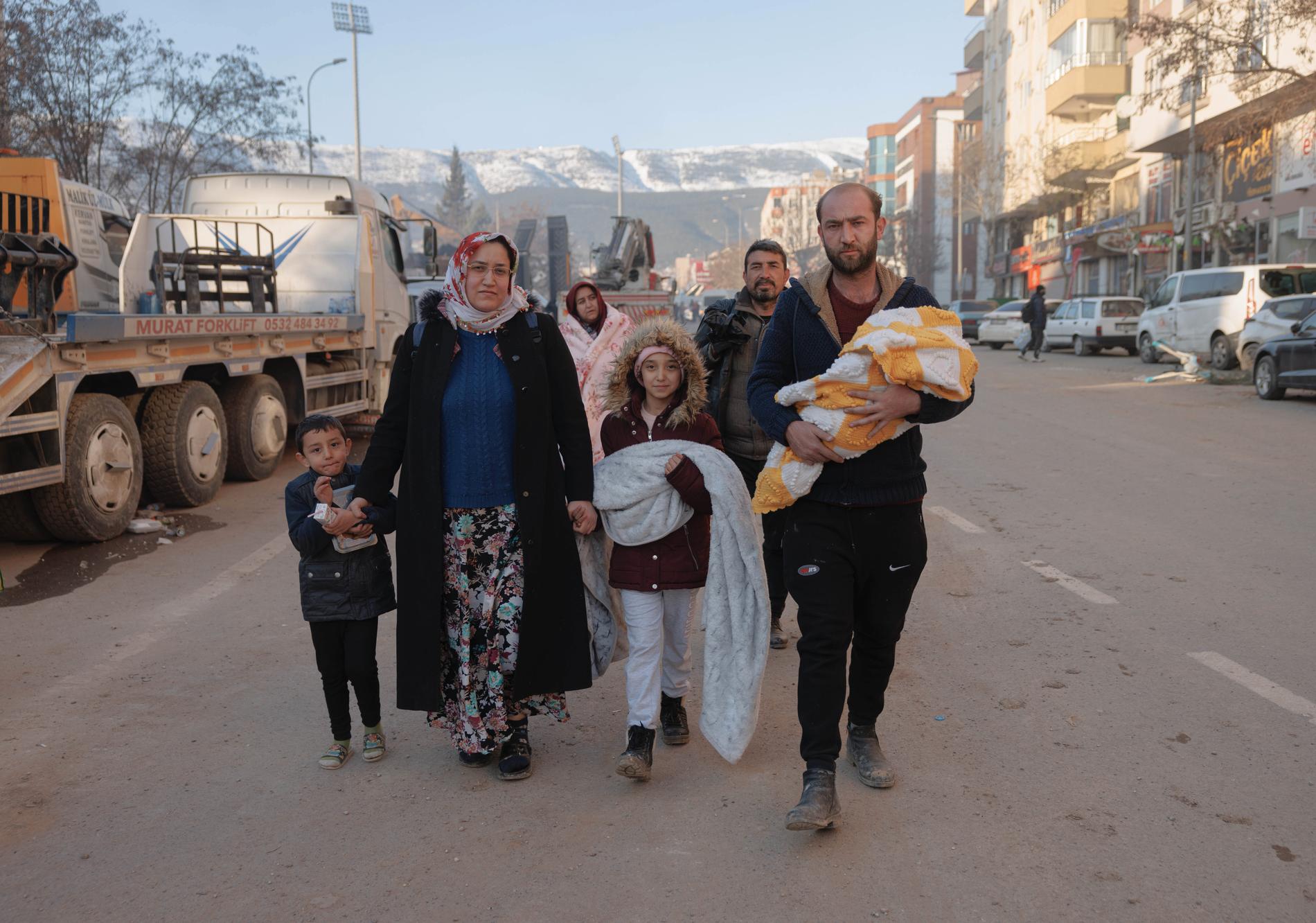
– It’s chaotic, but I’m used to childcare as an old housewife. What worries us is that it will be impossible to live here again. Our house is destroyed, the whole town is destroyed, she says.
Just outside the camp, father-of-three Murat (30) hurries off with a small bundle wrapped in a yellow blanket.
The little boy inside the blanket is fortunately completely unharmed – and fast asleep.
– We have been given a place in a tent after three days on the street. That’s very good. But we have to stay there for at least three months. Nobody knows what happens after that, says Murat.
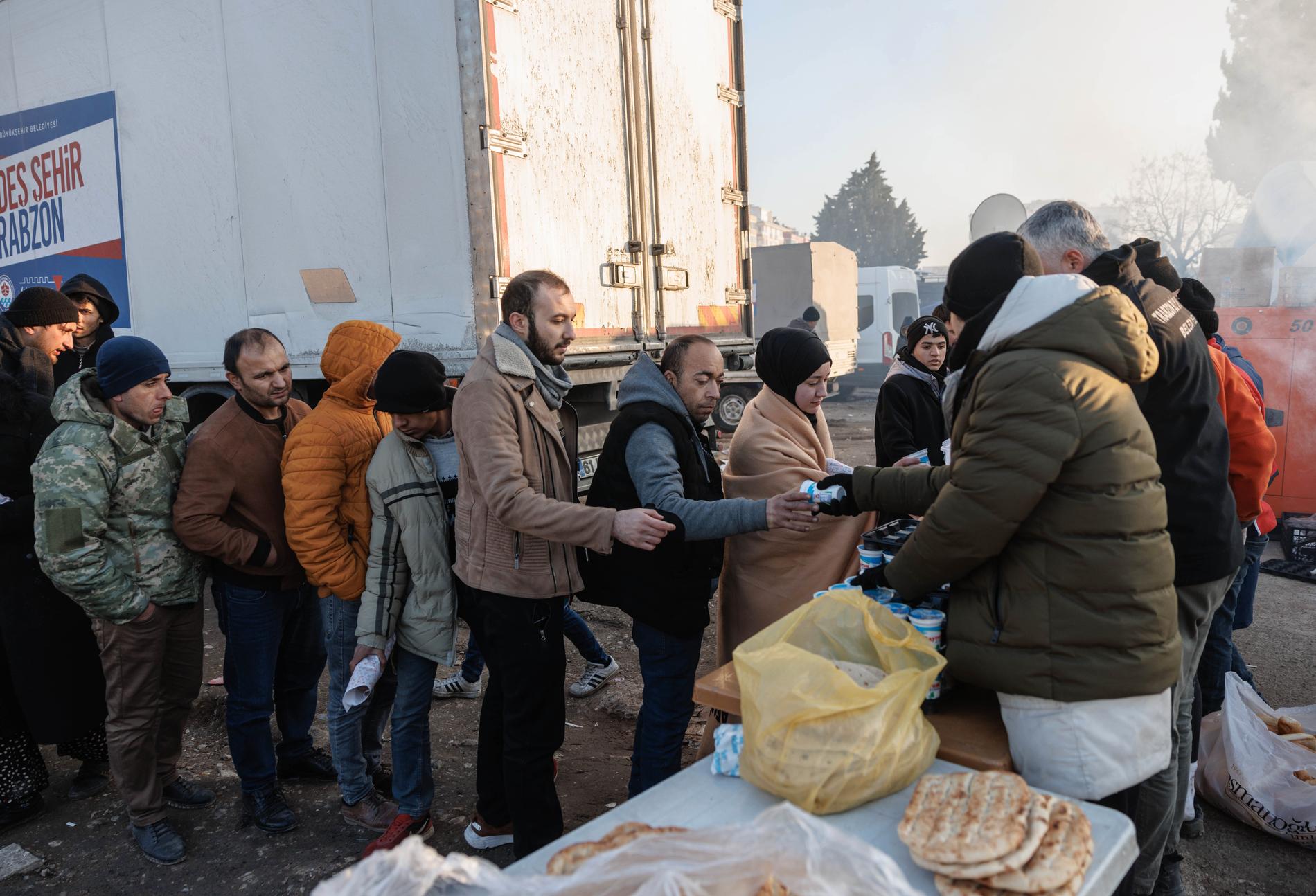
Kahramanmaraş is considered the hardest hit city after the earthquake disaster. It is almost completely destroyed, and several VG have spoken to in the two days we have been here say that they believe the city can never be habitable again.
A total of ten Turkish cities, with large provinces that include dozens of small towns, have been severely affected by the earthquake. The huge area, where an unknown number of dead lie under the ruins, stretches as far as the distance from Oslo to Stockholm.
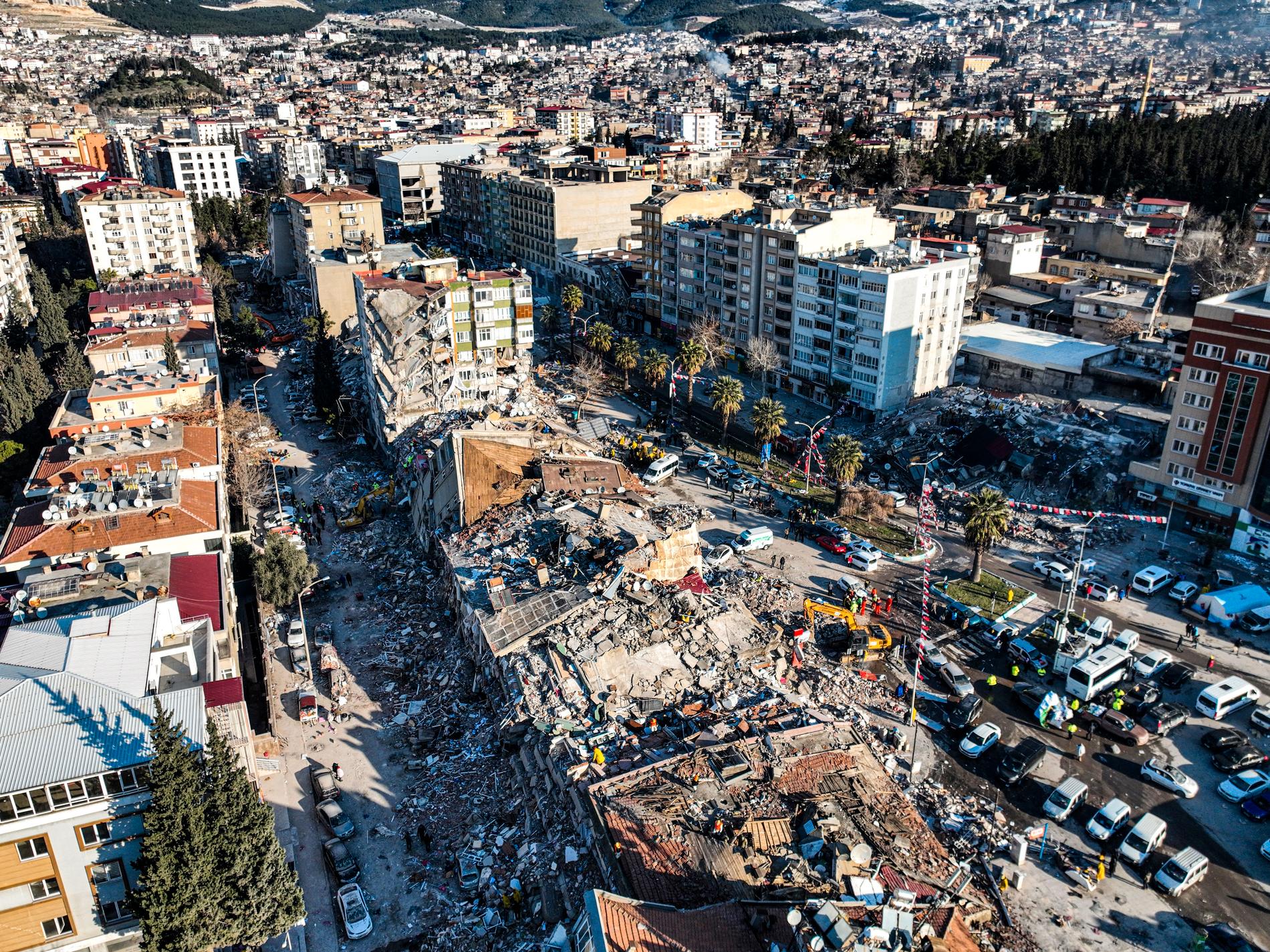
also read
City of Death: The Desperate Search
KAHRAMANMARAŞ (VG) The French rescue dogs make a mark in the ruins. One has heard life.
Fear many more dead
The official, preliminary death toll in Turkey on Friday evening is 19,875. Around 80,000 people have been reported injured. It is feared that this figure will increase dramatically in the coming days.
In Syria, 3,384 people have so far been found dead. The situation in the war-torn area, where millions of refugees live, is less clear than in Turkey, and the real death toll in Syria is probably far higher.
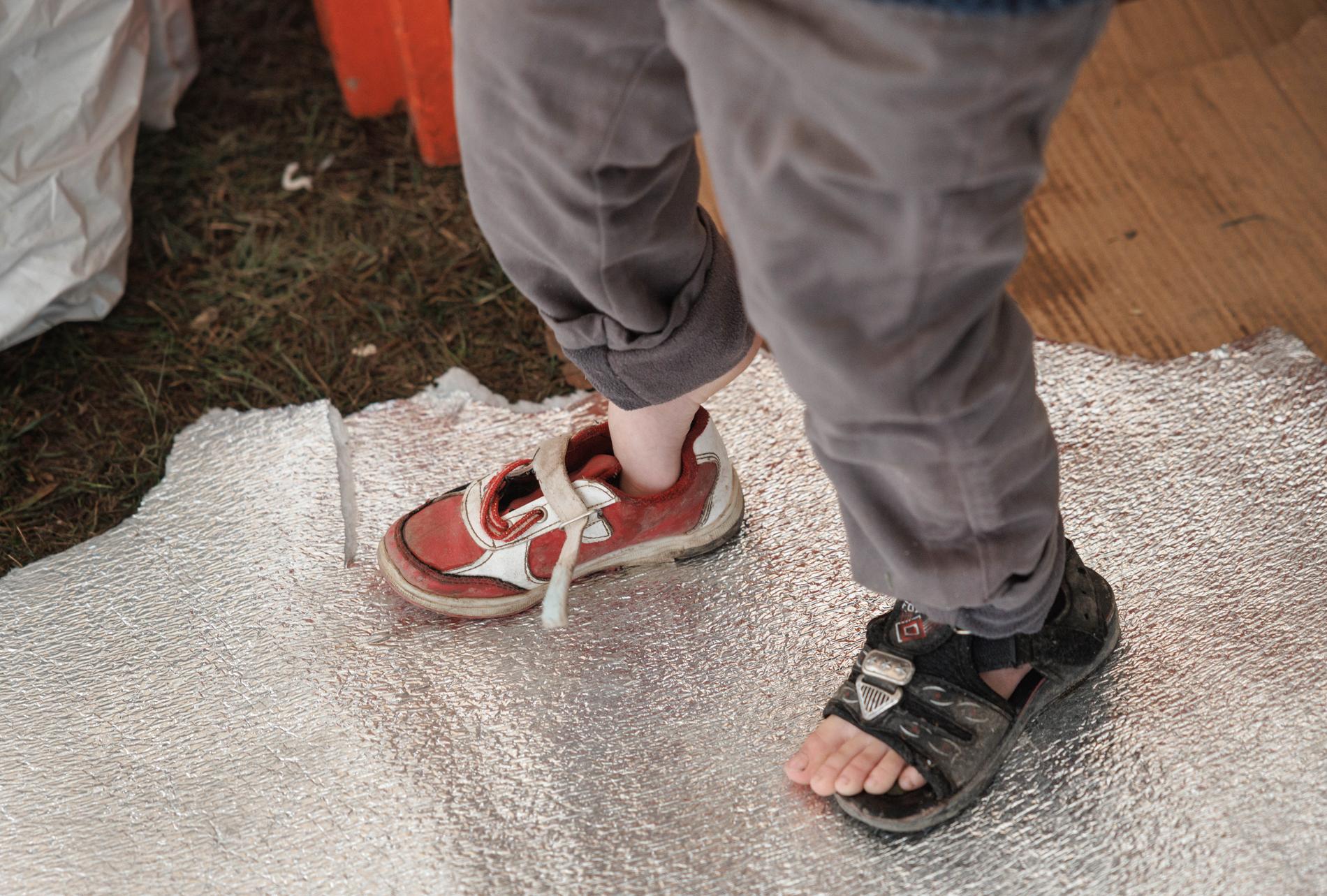
– It is incredibly difficult to know how many people have been rescued from the ruins, and how many have lost their homes, says Caner Olcay Asik, spokesman for the emergency service AFAD to VG on Friday evening.
– What we know is that we have evacuated 86,754 people from the earthquake area and to other provinces, and that 102,274 tents have been set up for families in need inside the earthquake area.
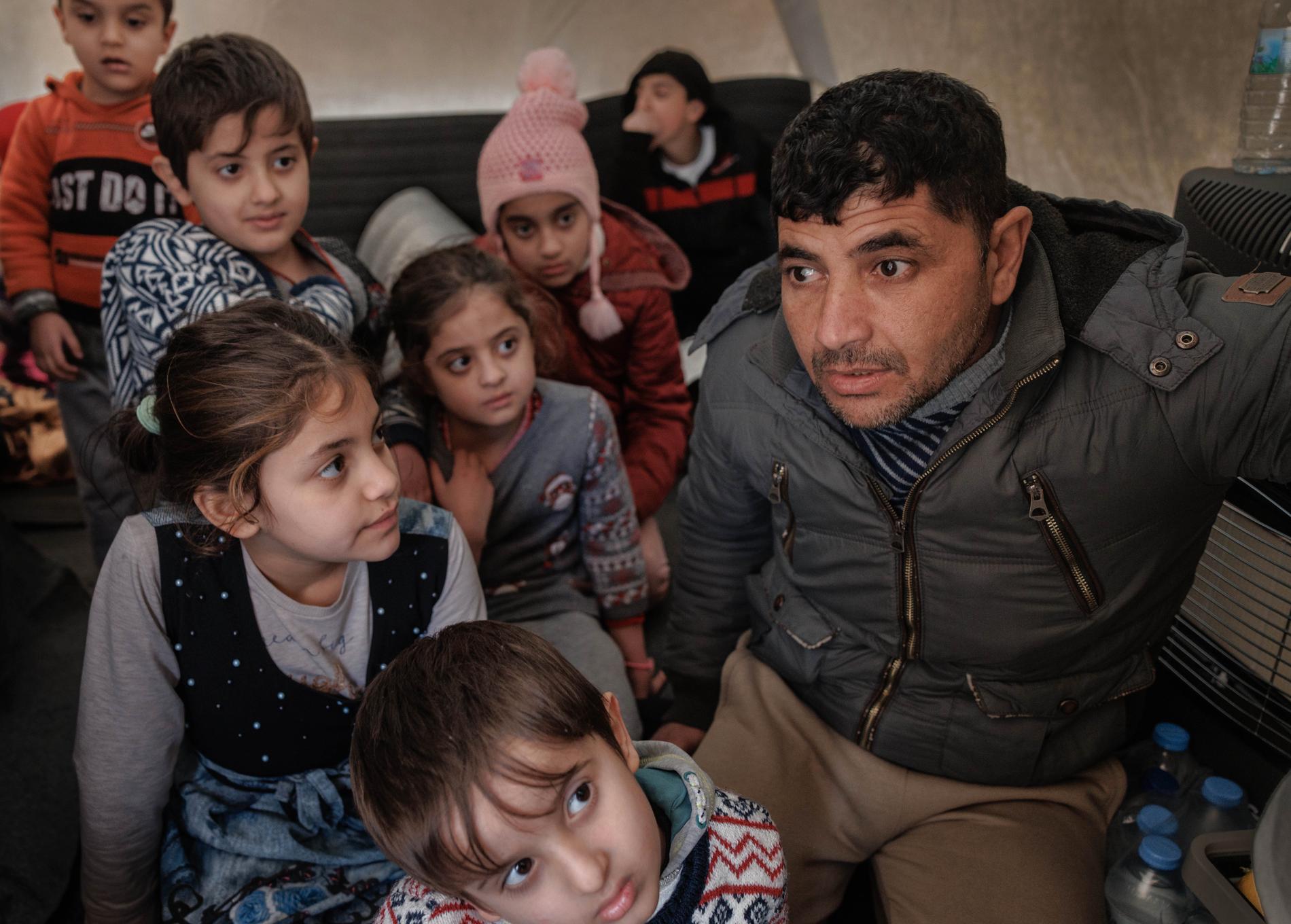

![Cleanliness | Severe cleanliness of the elderly who vacuums and mops the floor for 3 hours a day. My family members live with me: it makes me very hard[with doctor’s dismantling]- Sky Post – Health – Brain Nerves and Mental Health Cleanliness | Severe cleanliness of the elderly who vacuums and mops the floor for 3 hours a day. My family members live with me: it makes me very hard[with doctor’s dismantling]- Sky Post – Health – Brain Nerves and Mental Health](https://resource01-proxy.ulifestyle.com.hk/res/v3/image/content/3455000/3458142/Whats_1024.jpeg)